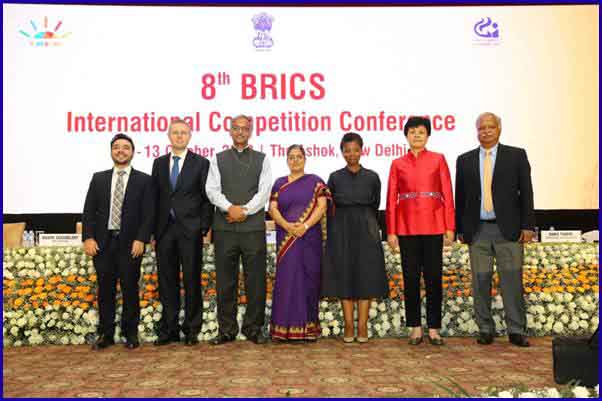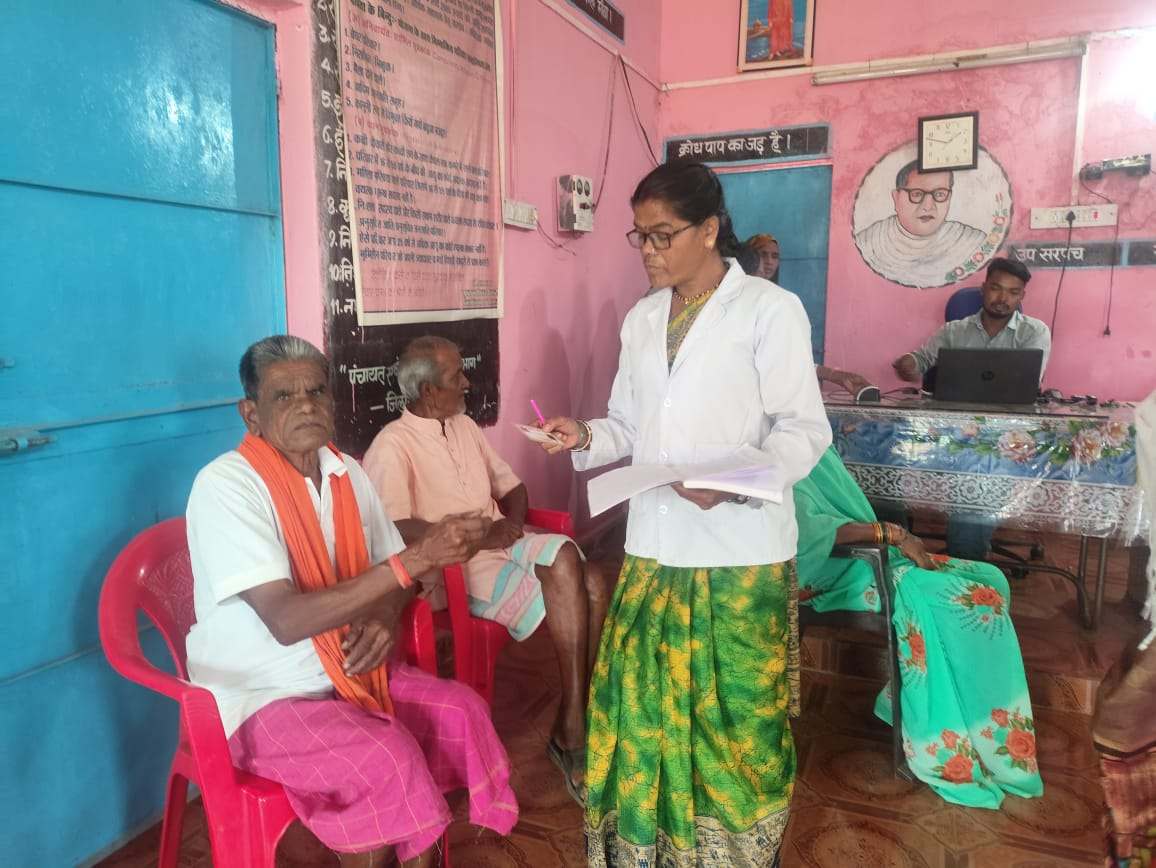
Collaborative efforts in Competition Law and Policy allow for exchange of best practices and alignment of regulatory standards: Secretary (Corporate Affairs)
Joint Statement signed by the BRICS competition authorities underscores strategic alignment towards fostering competition-driven growth and socio-economic progress in our regions: Chairperson (CCI)
The 8th BRICS International Competition Conference 2023 (BRICS ICC 2023), hosted by the Competition Commission of India (CCI) during October 11-13 2023, concluded in New Delhi today. The conference brought together more than 600 delegates, including heads of BRICS competition authorities, practitioners, competition policy experts, representatives of international organisations, and other stakeholders from BRICS and non-BRICS nations.
The conference comprised three plenary sessions and four breakout sessions, in addition to the inaugural session and the closing ceremony. In the plenary session on BRICS joint documents, Leniency Programme and Digital Economy Reports were released and discussed. The other plenary and breakout sessions facilitated the exchange of views amongst speakers from BRICS and other jurisdictions on a range of new and emerging issues related to competition law and policy. A Joint Statement was signed by the heads of BRICS competition authorities, which inter alia acknowledges the importance of continuing to share information, experience and best practices to strengthen enforcement capabilities and promote fair competition practices within BRICS jurisdictions.
In his valedictory address in the Closing ceremony, Secretary, Union Ministry of Corporate Affairs, Dr. Manoj Govil said that each BRICS member state possesses its unique legal traditions, economic structures, and regulatory approaches. Collaborative efforts in competition law and policy allow for the exchange of best practices and the alignment of regulatory standards to the extent feasible, practical and useful.
With reference to digital markets, Dr. Govil said that ensuring fair competition in digital markets, where network effects and data access can create insurmountable barriers to entry, poses a significant challenge. Competition authorities need to craft effective interventions that encourage innovation while preventing monopolistic practices. In this context, he apprised that in India a Standing Committee of the Parliament examined the subject of ‘Anti-Competitive Practices by Big Tech Companies’ and recommended an introduction of a Digital Competition Act to ensure a fair, transparent and contestable digital ecosystem. Subsequently, the Government of India has constituted a Committee on Digital Competition Law to review whether existing provisions in the Competition Act, 2002 are sufficient to deal with the challenges that have emerged from the digital economy and to examine the need for an ex-ante regulatory mechanism for digital markets. The Committee has undertaken a series of stakeholder consultations and is currently deliberating on the subject, he further mentioned.
Referring to the recent amendments made to the Competition Act in India, Dr. Govil said that the introduction of provisions for settlement and commitments will provide companies with the opportunity to resolve antitrust concerns cooperatively, reducing legal uncertainties and compliance costs. The implementation of deal value thresholds for merger notification ensures that mergers and acquisitions with substantial economic impact undergo scrutiny, safeguarding against anticompetitive practices while still facilitating investment and economic activity, he added.
In her address on the occasion, Chairperson CCI, Smt Ravneet Kaur said that the Conference paved the way for a more comprehensive understanding of the multifaceted challenges and opportunities that lie ahead of the competition authorities. The sessions allowed for an in-depth exploration of an extensive array of subjects, encompassing the profound implications of digitalisation on the competitive landscape, the pivotal role of competition policy in nurturing innovation and its vital contribution to sustaining robust economic growth. The collective sharing has not only served to deepen the understanding but has also underscored the crucial significance of fostering cooperation and collaboration among the BRICS countries, she added. Referring to the Joint Statement signed by the BRICS competition authorities, she said that it underscores the strategic alignment towards fostering competition-driven growth and socio-economic progress in our regions.
The closing ceremony was also addressed by heads of the BRICS competition authorities. They said that BRICS ICC 2023 conference has provided a useful platform to delve upon contemporary issues faced by competition agencies. In today’s globalized and interconnected world, they reemphasised the need for focussed and effective cooperation between the BRICS countries in the field of competition law and policy.
The event concluded with Shri Deepak Anurag, Member, Competition Commission of India proposing the vote of thanks and CCI handing over the baton to South Africa for the 9th BRICS International Competition Conference to be held in 2025.






